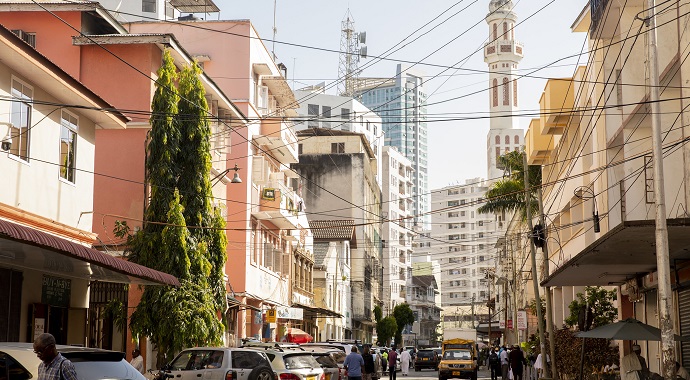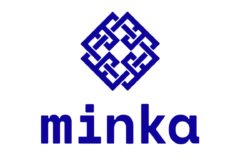MNT-Halan, an Egyptian startup bundling fintech and e-commerce, has snagged a billion dollars valuation at the back of a $400 million financing. The startup is now Africa’s 8th unicorn, joining a list that includes Nigerian Flutterwave and Senegalese Wave.
This announcement hints that Africa is back to minting unicorns after a year-long hiatus. But this MNT-Halan deal isn’t just a story of another billion-dollar venture.
The details of this deal highlight what might be an answer to a long-asked question of why the North African startup ecosystem hasn’t yet leveraged its relationship with the Gulf region at scale. We might be experiencing the first testimonial of the insurgent of the Arabian growth fund in North Africa, starting from Egypt.
The Gulf region consists of six kingdoms—Bahrain, Kuwait, Oman, Qatar, Saudi Arabia and the United Arab Emirates (UAE)—that control an enormous amount of wealth.
What’s different about this deal?
Let’s take a closer look at the investment. First, this round includes a $260 million equity deal and $140 million debt. And out of the equity deal, Chimera Investment, an Abu-Dhabi-based capital firm, paid $200 million in exchange for a 20% of the business. This is the first of its kind investment in the region and Africa put together as growth rounds like this are historically led by western investors.
“We are thrilled to be part of Egypt’s greatest fintech success story,” Seif Fikry, CEO at Chimera Abu Dhabi, said in a statement. For context, Chimera Investment is a subsidiary of Royal Group, a conglomerate of 60 businesses, chaired by Sheikh Tahnoon bin Zayed Al Nahyan, UAE’s National Security Advisor and brother to UAE’s president. Safe to say that the emirate money has located the Egyptian ecosystem.
Over the past few months, there have been activities from different Gulf investment holdings in Egypt. For instance, Public International Fund (PIF), Saudi Arabia’s $620 billion sovereign wealth fund, and ADQ, Abu Dhabi-based investment and holding company, also chaired by Sheikh Tahnoon, are currently planting their feet deep in Egyptian grounds. They have started hiring top local talent, and have made investments into big scaleups like Fawry and a state-owned company called E-finance.
Startup stakeholders in Egypt are excited by the arrival of the gulf deep-pockets, with the belief that there will be a spill-over of their funds—that are mostly stacked in private equity—into the venture capital ecosystem. Also considering that these sovereign funds, sitting atop a $3.3 trillion treasury, especially PIF which has been tasked to make Saudi Arabia less reliant on income from oil sales, are under pressure to source deals and deploy funds, as reported by Bloomberg, pumping money into the VC space seems inevitable.
“These two behemoth funds have VC mandates that could allow them to become LPs in local VC or directly deploy capital in growth companies from their recently launched country offices,” Karima El Hakim, country director, Egypt at Plug and Play, told me via email.
El Hakim is right as we are currently experiencing what you can call the “VCification” of private equity and the DFIs. The ridiculously high venture fund startups raised globally in 2021 created FOMO in private equity and DFIs, and in 2022, we saw them deploying cash into VC firms and in some cases, writing direct checks.
But there is still a concern that this might only benefit Egypt—a concern I have consistently raised in the past. The Maghreb region, which shares similar culture and identity with the Arabs, isn’t showing any sign that its startup scene will experience this Golf financing wave. El Hakim, however, thinks differently, “the Maghreb ecosystems will naturally follow, given their geographic proximity and startup stage maturity,” she said. El Hakim agrees with me that the Maghreb region is too well poised to not absorb surplus liquidity coming from the Gulf, but fears its predominantly french-speaking markets might be a blocker.
It is evident that the GCC are interested in locally-groom sustainable business. If nothing, buying 20% of MNT-Halan for $200 million speaks to that fact. MNT-Halan only operates in Egypt and is not planning to expand yet, instead deepening its reach within the country. This is unlikely, as Egyptian businesses of its size would have been in at least three different countries. In fact, what we have seen over the years is businesses of the same size using global expansion as the holy grail to secure investors’ buy-ins.
The Kingdom of Saudi Arabia and UAE have ignited a spark, and knowing how the GCC sovereign funds work, enthusiastic operators like El Karima are now keen and expecting more Arabian deep pockets to foray into North Africa startup ecosystem.





















